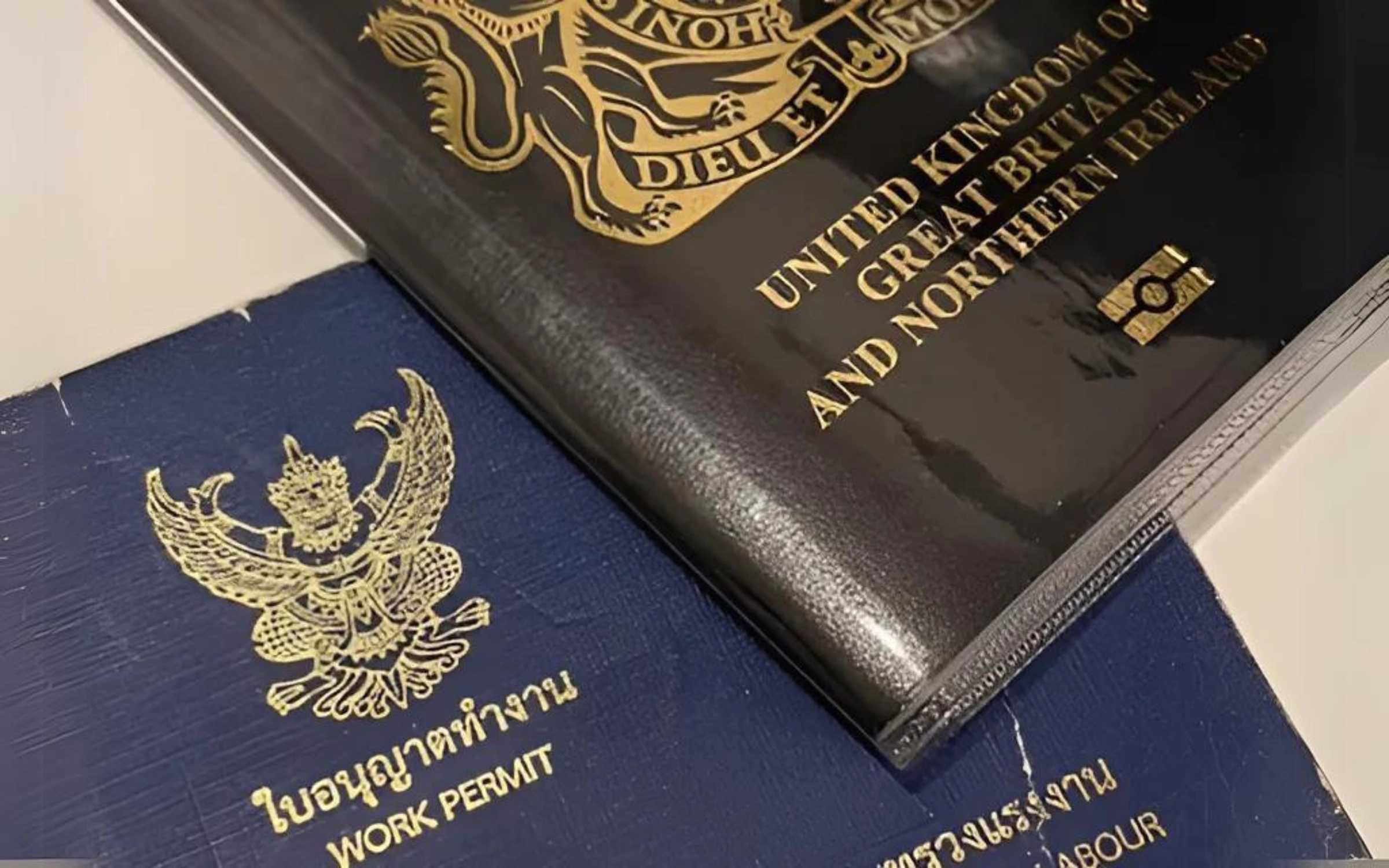What jobs can an English speaking person get in Thailand

Thailand’s job market has some great options for English speakers, especially in fields like teaching, tourism, and tech. The country’s growing economy means there’s a high demand for English skills, so industries are keen to hire foreign talent. According to the Ministry of Labour, the number of foreign workers in Thailand has increased by over 10% in recent years, showing that Thailand is pretty open to welcoming expats.
Popular jobs for English speaking people in Thailand
Thailand offers various job opportunities for English speakers. Some of the most popular jobs for English speakers in Thailand are:
Teaching English (ESL positions)
Teaching English ranks high on the list of jobs for English speakers. Many schools and private language institutions actively seek native and qualified teachers. If you’ve got a TEFL certificate, it really boosts your chances of getting a teaching job. Salaries can range from 25,000 to 110,000 baht a month, depending on where you work and your experience level. Most classes focus on conversational English, so you’ll get to have fun, interactive sessions with your students.
Hospitality and tourism (hotel management, customer service roles)
If you’re into customer service, the hospitality and tourism industries in Thailand have plenty of openings for English speakers. Jobs in hotels, resorts, and travel agencies are a good fit if you like interacting with people. You could work in front desk management, as a tour guide, or even in customer support, helping tourists navigate their experiences. These roles require strong people skills since you’ll be engaging with both tourists and your co-workers daily.
Tech marketing and content creation (writing, SEO, social media management)
Tech marketing roles are expanding in Thailand, specifically for English speakers. Companies often look for individuals skilled in writing, SEO, and social media management. If you have experience in these areas, you might find positions in marketing agencies or as a freelance writer. Many businesses value your ability to create engaging content for their websites and social media platforms, helping them reach a broader audience.
Real estate and property management
Real estate offers another avenue for English speakers. Many property companies seek individuals fluent in English to assist with client relations. Roles can include property management, sales, or rental assistance. Understanding market trends and presenting properties to potential clients are essential skills. Having good negotiation skills can also increase your attractiveness to employers in this field.
International business and trade
International business roles are opening up more and more for English speakers in Thailand. Companies involved in trade with overseas markets often look for professionals who can handle communication in English. You’ll find opportunities in sales, marketing, or logistics coordination. If you’ve got a business background, these jobs could be a great fit and usually offer decent pay and benefits packages, making it a solid option to consider.
Each of these sectors offers a unique set of opportunities and pathways for job development. With your English skills, you’ll find ample chances to establish yourself in Thailand’s various job market.
Teaching jobs in Thailand
Teaching English is one of the most popular jobs for expats in Thailand. You can find work in language schools, public schools, or even as a private tutor. It’s a great way to dive into Thai culture while earning a decent income.

Requirements for teaching English in Thailand
To get started, you’ll need a few key qualifications. Most schools expect you to have a bachelor’s degree from a recognised university. While your degree can be in any subject, schools might favour candidates with a background in education.
Having a TEFL certification is a big plus and often a must for getting this job. Certifications like CELTA or TESOL are also useful and can boost your chances. Some schools might ask you for a criminal background check and a medical certificate to ensure safety and health standards.
Salary expectations for teaching positions
Salaries for teaching positions vary based on qualifications and experience. Typical monthly salaries range from 25,000 to 110,000 baht. Earning potential increases significantly if you possess a TEFL certificate or extensive teaching experience. In some cases, private tutoring can offer even higher hourly rates, specifically in urban areas where demand for English lessons is strong.
Work tradition and job benefits for teachers
The work tradition in Thailand is generally friendly and relaxed, promoting good relationships with students and colleagues. You’ll often find supportive communities among teachers. Many schools provide various benefits, including paid holidays, medical insurance, and sometimes even free accommodation. These perks contribute to a comfortable lifestyle while living abroad, allowing you to focus on teaching and personal growth.
By understanding these aspects of teaching in Thailand, you can prepare for a fulfilling experience working in the country. It’s important to research specific job opportunities and consider applying to schools that match with your qualifications and lifestyle preferences.
Corporate and office jobs
Many English-speaking individuals can find interesting jobs in corporate and office settings in Thailand. These roles often come with good salaries and provide opportunities for job growth.

Roles available in multinational companies
You can look into various positions within multinational companies in Thailand. Many organisations seek English-speaking candidates for roles such as:
- Customer service representatives: These roles involve assisting customers and troubleshooting issues. Being friendly and articulate is crucial.
- Administrative assistants: Administrative roles often encompass managing schedules, organising files, and supporting executives. Strong organisational skills play a important part.
- Sales and marketing professionals: You may also find opportunities in sales and marketing. These positions often require building relationships with clients and promoting products.
Business consulting and financial services
The business consulting and financial services sectors also require English speakers. In these areas, you can engage in:
- Consulting: Consultants help companies improve their strategies and operations. Analytical thinking and problem-solving skills greatly benefit this role.
- Financial analysis: Financial analysts assess a company’s performance to guide decisions. Being proficient with numbers and data is important.
Requirements for these jobs (degrees, experience, language skills)
For many corporate jobs, certain qualifications and skills are necessary. Here’s what you need:
- Degrees: Often, a bachelor’s degree in a relevant field is essential. For example, business, administration, or finance degrees are highly regarded.
- Experience: Companies usually prefer candidates with experience. Internships or previous positions in similar roles can give you an edge.
- Language skills: While English proficiency is essential, knowing additional languages can be helpful. Languages such as Mandarin or Japanese may be particularly valuable.
Understanding these aspects can help you land a job in Thailand’s corporate world. Focus on using your skills and experience to stand out, as the competition can be tough.
Freelance and digital nomad opportunities
Thailand is a hotspot for freelancers and digital nomads. With the rising demand for various skill sets, English speakers can easily find work that suits their strengths.
Popular freelance opportunities (copywriting, editing, graphic design)
You can look into several popular freelance opportunities in Thailand. Copywriting and editing are in high demand. Companies are always on the lookout for creative talent who can produce engaging content in English. Platforms like Upwork and Fiverr make it easy to find clients from all over the world, so you can work remotely while enjoying life in Thailand.
Graphic design also presents excellent job opportunities. Many businesses need logo design, branding, and visual content creation. If you possess these skills, you can market your services through online portfolios or social media.
Programming and development represent another growing area. Freelance programmers, web developers, and app developers can find numerous clients. You’ll work on exciting projects while enjoying Thailand’s unique lifestyle. Focus on building a strong portfolio to attract potential clients.

Legal considerations for tech nomads in Thailand (visas, work permits)
When you’re thinking about freelancing in Thailand, make sure you’re clear on the legal stuff. You need to apply for the appropriate visa, such as a tourist visa or a business visa, depending on your situation. Just keep in mind that tourist visas don’t usually let you work, while a business visa gives you more room to take on job opportunities legally.
Make sure you’re aware of the specific work permits, as they depend on your job type. Research the regulations and submit the necessary documentation to avoid any legal issues. You may want to consult a local immigration lawyer or expert for guidance through this process.
Navigating this legal view can seem complicated, but proper preparation makes it manageable. Understanding these aspects helps ensure a smooth transition into your new freelance job in Thailand.
Working conditions and pay in Thailand
When considering a job in Thailand, understanding the working conditions and pay is essential. You’ll find that each job sector has unique benefits and challenges.
Average salaries for different jobs
Salaries vary significantly depending on the job type. For example, teachers in Thailand earn between 25,000 and 110,000 baht per month, specifically if you possess a TEFL certificate. In the tourism sector, positions like hotel management and customer service usually offer salaries around 30,000 to 50,000 baht per month. Freelancers can expect varied incomes, often between 20,000 and 100,000 baht per month, based on skills and project load. Knowing the salary ranges helps you set realistic expectations as you look into available positions.
Cost of living considerations
The cost of living in Thailand is generally lower than in many Western countries, making it easier to enjoy a comfortable lifestyle on a local salary. For instance, monthly expenses, including accommodation, food, and transport, can range from 20,000 to 35,000 baht. Living in cities like Bangkok or Chiang Mai offers various options that suit different budgets. Comparing your salary to the cost of living ensures you maintain financial stability while enjoying all that Thailand offers.
Comparison of wages in Thailand vs. other Southeast Asian countries
Wages in Thailand tend to be competitive compared to other Southeast Asian countries. For example, teaching jobs in Vietnam and Cambodia may offer lower salaries, usually ranging from $1,000 to $1,800 per month, while Thai salaries can reach as high as $3,200 for experienced educators. The hospitality sector also boasts similar wage structures, making Thailand an attractive option for English speakers seeking employment. By understanding these comparisons, you can make informed decisions about where to seek job opportunities in Southeast Asia.
Visa and work permit requirements
Getting a job in Thailand requires navigating its visa and work permit systems. Knowing these requirements helps ensure a smooth process for English nationals seeking employment.

Overview of visas available for English nationals working in Thailand
Several types of visas are available for English nationals. The most common is the Non-Immigrant “B” visa, specifically for business and work purposes. You can apply for this visa at a Thai embassy or consulate in your home country. Additionally, if you’re working as a teacher, consider the Education Visa (Non-Immigrant “ED”) designed for those in educational roles. It’s vital to secure this visa before entering Thailand, as entering with the wrong visa can complicate your job search.
How to get a work permit
To work legally in Thailand, you must obtain a work permit. First, your employer must apply for the work permit on your behalf. They’ll typically need to provide a letter of employment, your education qualifications, and proof of the company’s registration in Thailand. Once your employer receives the work permit approval, you can collect it. This process usually takes around 5 to 10 working days. Make sure all documents are accurate and complete to avoid delays.
Legal restrictions on certain professions
Some professions in Thailand come with specific legal restrictions. For instance, teaching English requires you to have at least a bachelor’s degree and a TEFL certification or equivalent. Certain high-skilled jobs may also demand additional qualifications. You can’t engage in any work that falls outside the scope of your visa or work permit. It’s crucial to thoroughly review the requirements for your specific role to prevent any legal issues down the line. Always stay informed of the latest regulations, as they can change frequently.
Thailand offers plenty of job opportunities for English speakers, particularly in teaching, tourism, and tech. Just be sure to have the right qualifications and understand the visa and work permit requirements for a smooth experience. Overall, Thailand’s expanding economy and welcoming culture make it a great place for expats to work.
FAQs about working in Thailand
Do jobs pay well in Thailand?
Jobs in Thailand can pay well, but it depends on the sector and your qualifications. Teaching English, for instance, offers salaries between 25,000 and 110,000 baht per month. Positions in the tourism and hospitality industries usually pay around 30,000 to 50,000 baht monthly. Freelance roles can vary significantly, with earnings typically ranging from 20,000 to 100,000 baht. Overall, while salaries might be lower than in Western countries, the cost of living in Thailand is also lower, allowing for a comfortable lifestyle.
What is the most popular job in Thailand?
The most popular job in Thailand for English speakers is teaching English as a foreign language. Many foreigners find work in private language schools, public schools, or as private tutors. Teaching offers not just a salary but also the chance to immerse yourself in Thai tradition. Other popular jobs include roles in tourism, hospitality, and tech freelancing, all of which continue to attract English speakers.
What jobs can you get if you like English?
If you like English, numerous jobs are available. Teaching English remains the top choice, but you can also work in business consulting, customer service, and sales and marketing for international companies. Tech nomads can look into freelance opportunities in writing, graphic design, and programming. Each of these options allows you to utilise your English skills effectively and often attracts good salaries.
What jobs are in demand among foreigners in Thailand?
Several jobs are in demand for foreigners in Thailand, primarily in education and tourism. English teachers are always needed, specifically in language schools and international institutions. The tourism industry also seeks foreign workers for roles like tour guides and hotel management. Also, with the rise of technology, jobs in tech marketing and freelance positions in programming or writing are becoming increasingly sought after. Understanding the demand for specific roles will help you focus your job search effectively.
































